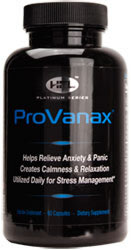![]()
 The sweetly-scented perennial plant known as valerian was first used as a medicinal herb by the ancient Greeks and Romans. Valerian for sleep disorders such as insomnia was prescribed by the Greek physician-surgeon Galen to Roman emperors.
The sweetly-scented perennial plant known as valerian was first used as a medicinal herb by the ancient Greeks and Romans. Valerian for sleep disorders such as insomnia was prescribed by the Greek physician-surgeon Galen to Roman emperors.
Aside from being a remedy for insomnia, the use of valerian for anxiety and other disorders associated with psychological stress is also widely practiced, in lieu of hypnotic drugs. Valerian is also used to treat migraines, stomach upset, hypochondria, nervous asthma, headaches, excitability, epilepsy, ADHD (Attention Deficit-Hyperactivity Disorder), mild tremors, CFS (Chronic Fatigue Syndrome), and depression.
Is Valerian Safe To Use For Insomnia?
Although the U.S. Food and Drug Administration (FDA) has not regulated the production or medical claims of valerian, there are 400 recorded herbal preparations which contain, in one form or another, extracts from the valerian plant’s roots. Because of its herbal supplement classification, valerian is available as an over the counter (OTC), non-prescriptive medication. Valerian is classified as “Generally Recognized As Safe” or GRAS by the FDA and is sold as a supplement.
The valerian herb, which derives its name from “valere,” the Latin word which means healthy and strong, has been touted to be effective in providing anxiety relief and prevention of seizures as well as having potent properties for muscle relaxation and sedation. And in some cases, valerian is used to treat muscle pain, menstrual cramps, menopausal symptoms and joint pain.
How Does Valerian Work?
Combined with passion flower, lemon balm, kava kava, hops and other herbs which promote sleep and calm, valerian is used by some who are coming off pharmacological sleeping pills. Although the evidence hasn’t been conclusive linking valerian’s effectiveness in treating sleep disorders, scientists believe valerian increases the GABA content in the brain. GABA is short for gamma aminobutyric acid which promotes relaxation. The larger the amount of GABA in the brain, the more this neurotransmitter works with the brain’s nerve cells to produce calming effects.
These calming effects develop into gentle sedation which enables the body to prime itself for sleep. There have been studies that showed how the time for sleep preparation was considerably shortened when subjects were administered with valerian. Other studies suggested that regular use of valerian results in increased efficiency of the herb; several weeks of ingestion, in fact, can make the effects more prominent.
Valerian does not have the same side effects associated with prescriptive medications, such as drowsiness during the day.
What Dosage is Best?
For adults who are suffering from insomnia, dosage may be as follows:
- Fluid extract: 1 to 2 ml or ½ to 1 teaspoon.
- Dry powder in extract form: between 250 mg and 600 mg.
- Tincture: between 4 and 6 ml or 1 to 1½ teaspoons.
As tea, 2 to 3 gm of dried valerian root may be steeped in a cup of boiling water between five and ten minutes. For treatment of anxiety, 200 mg of dry powder in extract form may be taken from 3 to 4 times a day.
Adults may take valerian as a sleep aid 1 to 2 hours prior to bedtime to treat insomnia or, as mentioned, from 3 to 4 times daily with the last dose taken near bedtime. Valerian is recommended to be taken between two and six weeks after sleep has improved.
How Do You Take Valerian?
Valerian can be taken as a tincture with an alcohol base, or as an alcohol-free syrupy liquid. Valerian supplement in powdered form can be taken as tablets, capsules, and tea.
Because of its sharp odor, valerian is frequently combined with similar calming herbs such as passionflower, skullcap, and, as mentioned earlier, lemon balm and hops to mask the scent.
Are There Any Precautions?
Herbs have been recognized as effective in treating diseases and strengthening the immune system but they can also trigger some side effects for unknown reasons or when they interact with medications, supplements, and even other herbs.
Before taking valerian, consult a physician to ensure safety in using it. Studies have shown that valerian is safe for human ingestion, notwithstanding its FDA classification as GRAS, with no adverse effects either on fetal development or fertility.
Paradoxical reactions to valerian may be possible from some individuals in that they feel restless or anxious after taking it instead of becoming calm and sedated enough to sleep. There has been no report as yet that valerian causes dependency or withdrawal symptoms for most, albeit a few have had such symptoms after prolonged use of the herb. In such cases, lowering the dosage gradually has been recommended.
Also, valerian must not be taken when engaged in activities which require alertness such as driving, operating heavy equipment or machinery, and working with chemicals and other substances which may be potential health or safety hazards.
Possible Interactions With Prescription Medication
If you have existing medical conditions and are being treated for those with pharmacological medications or other treatments, consult your physician before taking valerian since it may cause the liver to slow down its processing of some of these.
Some medications may become excessive in the body and build up over time when they are not broken down promptly by the liver. Taking valerian alongside other medications may increase their potency and lead to serious medical conditions:
- Barbiturates
- Zolpidem
- Benzodiazepines like alprazolam and diazepam a.k.a. Valium
- Ramelteon
- Tricyclic antidepressants like amitriptyline
- Zaleplon
- Eszopiclone
- Anticonvulsants like valporic acid and phenytoin
- Alcohol and alcohol-based beverages
Both valerian and some other drugs are broken down by the same liver enzymes, making it possible for them to interact with one another. These drugs include:
- Antifungal drugs
- Statins for lowering high levels of cholesterol
- Antihistamines
Valerian could increase anesthetic effects; if you are scheduled to undergo surgery, inform your anesthesiologist and surgeon that you are on valerian. Valerian dosage may either be lowered slowly prior to your surgery or you may be allowed by your doctors to take valerian up to your scheduled surgery because your anesthesiologist would have made the necessary adjustments.
Any Side Effects?
Some people have experienced side effects of Valerian, but these have been shown to be generally nothing to worry about:
- Morning sleepiness
- Headache
- Weakness
- Dizziness
- Stomach upset
- Itchiness
- Dry mouth
Other Valerian Uses
Other than for insomnia and other conditions mentioned previously, valerian is used to treat:
- Irritable bowel syndrome or IBS
- Intestinal colic
- Rheumatic pain
- Uterine cramps
- Nervous tension
- Muscle relaxant
- Antispasmodic (in Europe) for abdominal cramps
- Migraine
Should You Take Valerian?
Consulting with your physician is obviously the first thing to do before taking valerian. If you have your doctor’s approval, there shouldn’t be any reason why you shouldn’t take valerian if you would rather treat your insomnia with medicinal herbs instead of pharmacological drugs.
Valerian is non-addictive and its sedative effect is unlike that of prescription drugs. With moderate use, valerian might just be the thing to enable you to get a good night’s sleep every single night.
Want To Get Rid of Insomnia and Stress Naturally?
This is what one user had to say: “I was really depressed and nervous could not sleep only 2 hours at a time i ordered ProVanax first night I slept all night long second night 6 hrs so much energy now will tell everyone. Thank you so much.” (Testimony from company website) If you’re struggling to get a good night’s sleep due to stress, depression or anxiety, ProVanax might just be the answer. Click here to learn more about the ProVanax and how it can help you. |
AFFILIATE DISCLOSURE
This website contains affiliate links, which means we may receive a percentage of any product or service you purchase using the links in the articles or advertisements. You will pay the same price for all products and services, and your purchase helps support our ongoing research and work. Thanks for your support!
